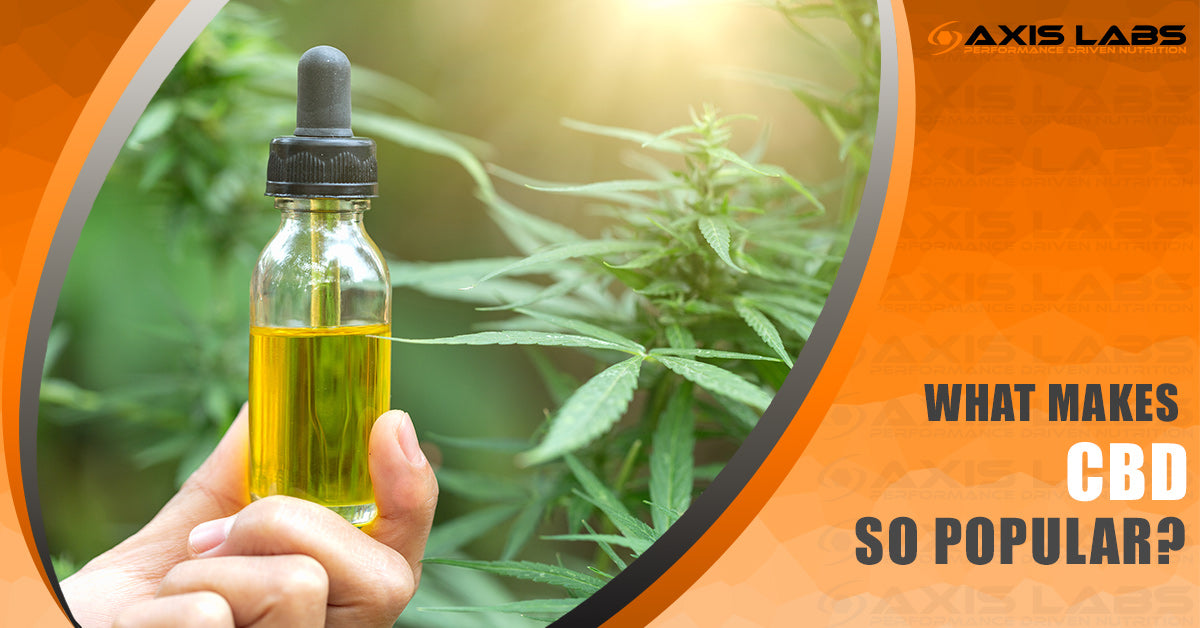Your Cart is Empty
FREE SHIPPING ON ORDERS +$49
FREE SHIPPING ON ORDERS +$49
Do You Know How CBD Will React To Your Other Medications?
5 min read

Run a quick Google search for “CBD Pills” and you’ll be bombarded by results. Products, articles, videos, and more will all be presented to you en mass, all presenting a different take on this promising compound.
And we get it. The excitement behind CBD is obvious. We’ve all heard the success stories of some individuals using it to treat their epilepsy, and others using it as a health supplement to help them reach other health and wellness goals. But in many cases, these articles and anecdotes don’t often explore whether these individuals were using other drugs and medications as well.
Here at Axis Labs, we’re big fans of the basics of health. With proper diet and exercise, a good relationship with your doctor, plus adding in some CBD, you can live your best life. But we also believe that you should make educated decisions about health. Whiletalking to your doctor about CBD, they might discuss how this cannabis compound can interact with your prescription or over-the-counter medications. Let’s take a quick look at this.
Using Just CBD
If you'veread any of our articles in the past, or if you’ve caught up on other posts and videos, you’ll know that many are using CBD to help treat or manage a myriad of concerns. Fromworkout recovery totestosterone, CBD can be used in a wide variety of ways. And when CBD products like pain relief creams and drops are used on their own, they’re basically benign.
One of the reasons that many choose to use CBD instead of a pharmaceutical is that there are limited side effects and no risk of overdosing. While taking too much cannabidiol might result in minute concerns like grogginess or diarrhea, it’s nothing as severe as taking too much of an opioid or NSAID pain killer. Indeed, as one2018 study found, you can take up to 1,500mg of CBD with no negative effects. The study had participants take nearly 30 times the recommended dosage of a specific CBD product, and none of them displayed anything more than mild symptoms.
So when used alone, you can trust that CBD is safe, and could help you enhance your health and assist with a number of concerns you might have. Fromsleeplessness tochronic pain, toanxiety, and more, CBD can be a regular part of your health and wellness routine.
CBD and Your Medications
It’s when we start to use CBD with other medications and drugs that things start to get complicated. But before your eyes glaze over, bear with us, as this is pretty important stuff.
In some cases, there’s a chance that using cannabidiol could actually block the effects of your other medications. This can be challenging in some cases, and dire in others. But chemical interactions aren’t unexpected, because any medicines and supplements will interact with each other in some way. But what leads to these interactions?
CBD, the ECS, and Cytochrome P450
The reason that CBD has any effect on your body is because of your ECS, orendocannabinoid system. This is a network of receptors that runs throughout your body and is connected to your central nervous system. Not only that, your ECS is actually designed to absorb and use compounds like CBD.
But sometimes when your ECS absorbs CBD, it can interrupt other processes in your body, like the metabolizing processes of the liver enzymecytochrome P450. In some cases, CBD could deactivate the CYP450 in your liver. This hampers your capability to metabolize the drugs and medications you might need to stay healthy. This makes these drugs far less effective or keeps them lingering in your system for a longer period of time. In either case, when a medication isn’t fully metabolized, your body could respond negatively, the drug could accrue in your bloodstream, and you might experience a more pressing health concern than the one you were trying to treat with the drug.
So Which Medications Don’t Get Along with CBD?
Unfortunately, there’s no master list of drug interactions we can refer you to. That’s in part because CBD is still being researched by private groups, universities, and even the government. But that doesn’t mean that there isn’t any research on these topics. Some studies have found obvious interactions between a medication and CBD.
Sedatives and Sleep Aids
Some already use CBD as a way to help lull themselves to sleep, and when used with prescription medicines, there’s some research to suggest that the cannabis compound can exaggerate the drug’s effects. While researchers don’t have a firm grasp on how the two interact yet, some have found that taking a sleep aid and CBD can make it difficult to stay awake. It’s in your best interest to not take CBD while also taking prescription sleep aids.
Seizure Drugs
CBD has become one of the biggest names intreating epilepsy and seizures out there. In fact, it’s been used successfully for many years, and the FDA has even approved a CBD-based drug for use. There’s a body of evidence to suggest that CBD may be an effective anti-seizure treatment option even on its own. But it may not be as effective when used alongside other drugs. As noted above, CBD can slow the CYP450 enzyme, which as a study from 1992, can prevent the build-up of anti-epileptic medications like norclobazam and clobazam in the bloodstream. In some cases, this exacerbated the symptoms of the next seizure.
Diabetes Medications
There hasn’t been a lot of research into the connection between CBD and diabetes, but what little there isquite promising. The evidence argues that CBD could help lower insulin resistance while also helping to bolster things like the metabolic process and control of blood sugars. Of course, there’s little research that has looked directly at how CBD and insulin interact.
Opioids
As part of the debate around the overuse of opioids, many have suggested that cannabis products like CBD be used as an alternative. The thinking is sound, as both opioids and CBD are used to help manage pain.
Studies note that CBD could be used as an effective pain-reliever and even replacement for opioids. In2011, a group of researchers asked subjects to use a vaporized CBD product alongside their regular opioid prescriptions. The study found that the concentration of opioids in the subjects’ blood levels weren’t changed at all by the use of cannabis. But, the subjects noted that they felt less pain after using the CBD.
How Do You Use CBD and Your Medications Together?
We’ve said it once, and we’ll say it again. When it comes to CBD, it’s best totake it low and take it slow.Everyone processes CBD differently, much in the same way that they metabolize medication differently. In reviewing the research, it has been found that, when taken in low-doses, CBD doesn’t have a pronounced effect on any doctor-prescribed medications. In other cases, there’s no effect at all.
That said, it’s always a good idea to talk to your doctor about your use of CBD while you’re also taking other prescribed or over-the-counter medications. This is the best way to ensure that you stay safe and healthy, while also enjoying the maximum benefits of your medications and cannabis products.
If you’re interested in switching to a healthy routine that makes great use of CBD, you can talk to your doctor about phasing out other medications in favor of CBD over time.
Order Premium CBD Products Today
Lab-tested and quality-proven, all of the CBD products offered by Axis Labs are made from high-quality, Colorado-grown hemp, and are tested by a third-party to check for purity and potency. From CBD shots to gummies, tinctures for you and your pets, to pain relief creams, we have the right products for your lifestyle. Browse our collection and order yours today!
Also in Blog
Subscribe
Sign up to get the latest on sales, new releases and more …










